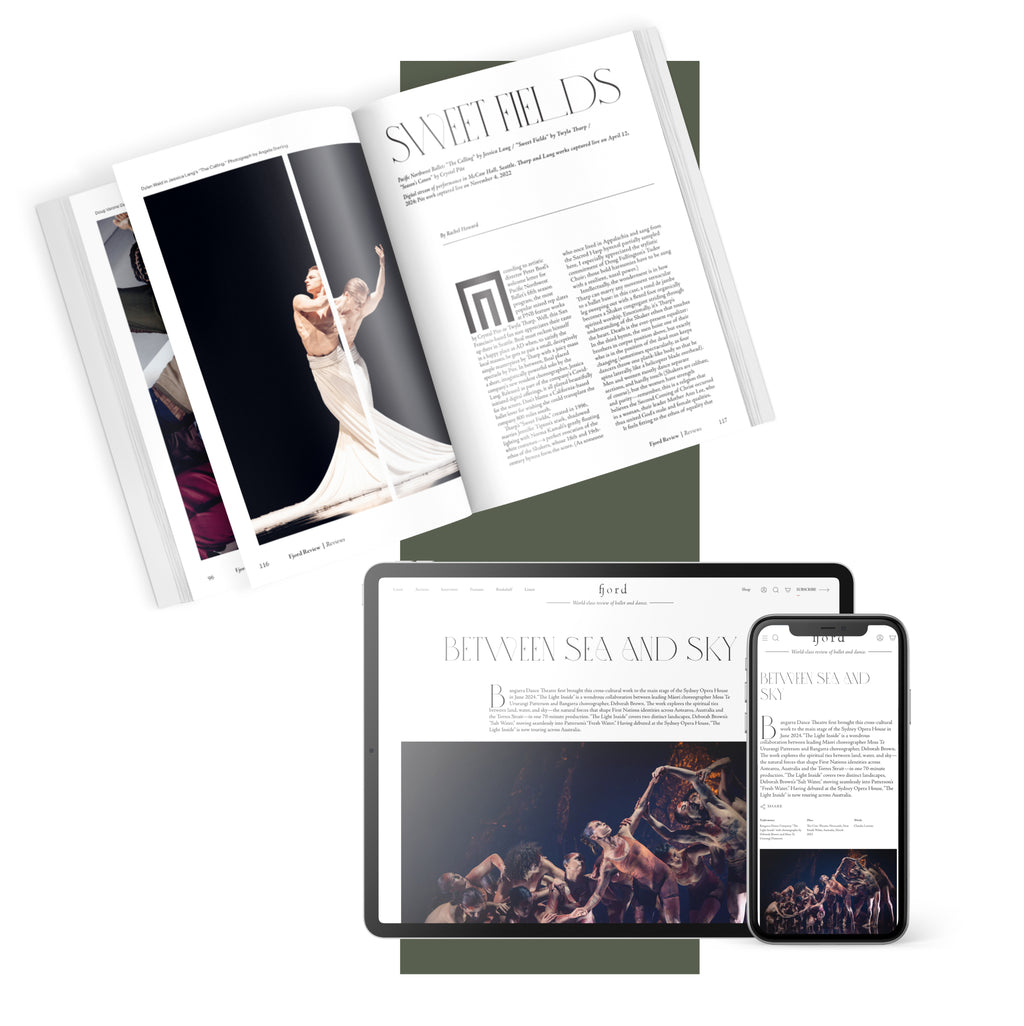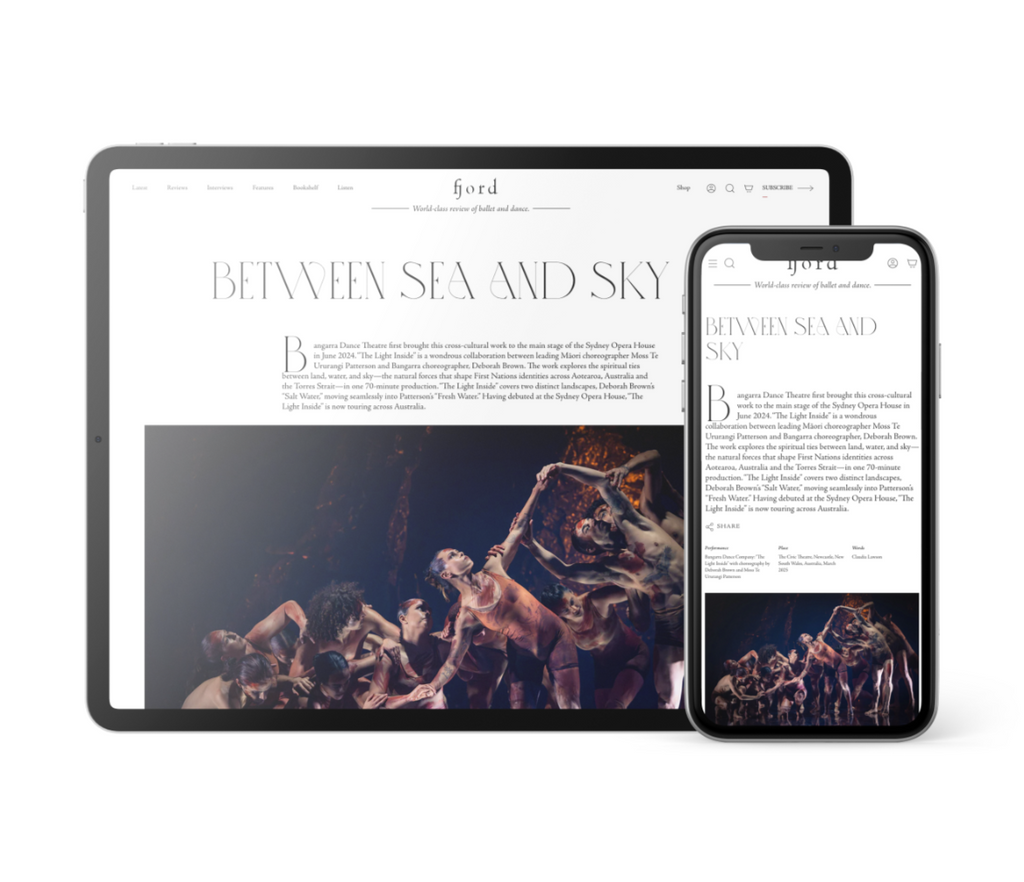I’m of the camp that thinks this was a mistake, muting a bold work of art and leaving us with just, you know, some garden variety genius choreography. But there are compensations: when Balanchine took out the caller he also added a stirring, soul-laid-bare solo for the male dancer, and Kyle Davis’s rendering of this, simultaneously dignified and vulnerable, was the emotional center of this staging by PNB artistic director Peter Boal. Walking across the stage with one hand to hip and the other extended, courtly, Davis was doing what Balanchine wanted: Just being himself, a dancer inhabiting the music. But by fully and openly doing so, he became a vessel for our feelings. His sudden big, flinging jump embodied emotion without melodrama, and the strange tick-tocking of his arms en haut above his head as he lifted a leg through passé seemed to show a sensitive mind in deep solitude contemplating a painful past episode, looking at things one way, and then the other.
Elsewhere in this performance, the dancers’ sensitivity to the shifts of relationship were thrilling. The pas de deux starts with the man extending a grand, almost solemn bow to the principal woman; into this opening Davis and Leta Biasucci let a whole unspoken story flow. As again and again she stepped backwards, blindly, into a retiré caught by his support, you saw a couple discovering trust with an undertone of seriousness—this kind of connection has consequences, and their slow partnering felt like vows. But with such trust comes joy and freedom, and as the Vivaldi Largo shifted into bright excitement, Davis and Biassuci gamboled for one another with the innocence of children, she flicking her heels, he taking some jazzy passés with the hip pushing out. Biasucci could not have been brighter, clearer, or purer throughout the ballet, her feet so pliable, her turnout so clean, and her center so secure that she became the proverbial hummingbird able to shift direction by pushing against the air. The women and non-binary dancers of the ensemble, too, moved with beautiful wholeness, though the men and non-binary contingent sometimes struggled.











comments